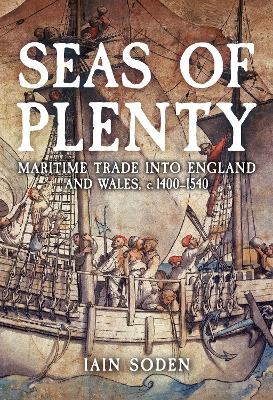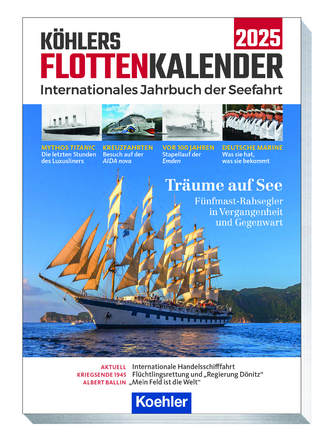
Seas of Plenty
Maritime Trade into England and Wales, c. 1400-1540
Seiten
2024
Amberley Publishing (Verlag)
978-1-3981-2289-5 (ISBN)
Amberley Publishing (Verlag)
978-1-3981-2289-5 (ISBN)
Explore the fascinating story of England's emergence as a major maritime trading power, from 1400 to 1540.
This is a book about sea journeys made by brave souls – Italians, Germans, Dutch, and English – who battled storms, pirates and xenophobia to stock our homes and feed this island’s appetite for exotics and whatever we could not grow or make ourselves as we fought our way through civil war, invasion paranoia and economic disaster, as if nature’s own storms at sea are not challenge enough.
The welcome we extended was often less than cordial, but two dozen of our ports, some cosmopolitan and now vastly enriched, others tiny, rudimentary but now among our best-loved holiday resorts, enabled our people to consume – largely in return for English wool and woollen cloth – almost whatever we craved. The Continent could bring us such items from the farthest reaches of Europe and beyond, leading eventually to the growth of our own trading fleet and a sense of self-reliance across our island nation.
Being England’s trading partner in the fifteenth and early sixteenth centuries was to ride an economic rollercoaster, to face off against pirates and squabbling navies, and to suffer appalling shipwreck, all in the teeth of a heavy swell of ingratitude. But trade was vital, and it went on regardless. This is how we stocked the larder – and in doing so became a maritime power.
This is a book about sea journeys made by brave souls – Italians, Germans, Dutch, and English – who battled storms, pirates and xenophobia to stock our homes and feed this island’s appetite for exotics and whatever we could not grow or make ourselves as we fought our way through civil war, invasion paranoia and economic disaster, as if nature’s own storms at sea are not challenge enough.
The welcome we extended was often less than cordial, but two dozen of our ports, some cosmopolitan and now vastly enriched, others tiny, rudimentary but now among our best-loved holiday resorts, enabled our people to consume – largely in return for English wool and woollen cloth – almost whatever we craved. The Continent could bring us such items from the farthest reaches of Europe and beyond, leading eventually to the growth of our own trading fleet and a sense of self-reliance across our island nation.
Being England’s trading partner in the fifteenth and early sixteenth centuries was to ride an economic rollercoaster, to face off against pirates and squabbling navies, and to suffer appalling shipwreck, all in the teeth of a heavy swell of ingratitude. But trade was vital, and it went on regardless. This is how we stocked the larder – and in doing so became a maritime power.
Iain Soden read Classics at university and for four decades was a professional archaeologist, specialising in aspects of medieval England. He is the author of four books and numerous archaeological reports, journal articles and conference papers.
| Erscheinungsdatum | 22.08.2024 |
|---|---|
| Zusatzinfo | 16 Plates, color |
| Verlagsort | Chalford |
| Sprache | englisch |
| Maße | 156 x 234 mm |
| Gewicht | 712 g |
| Themenwelt | Natur / Technik ► Fahrzeuge / Flugzeuge / Schiffe ► Schiffe |
| Geschichte ► Allgemeine Geschichte ► Mittelalter | |
| Geisteswissenschaften ► Geschichte ► Teilgebiete der Geschichte | |
| ISBN-10 | 1-3981-2289-0 / 1398122890 |
| ISBN-13 | 978-1-3981-2289-5 / 9781398122895 |
| Zustand | Neuware |
| Haben Sie eine Frage zum Produkt? |
Mehr entdecken
aus dem Bereich
aus dem Bereich
internationales Jahrbuch der Seefahrt
Buch | Softcover (2024)
Koehler in Maximilian Verlag GmbH & Co. KG
CHF 35,90


